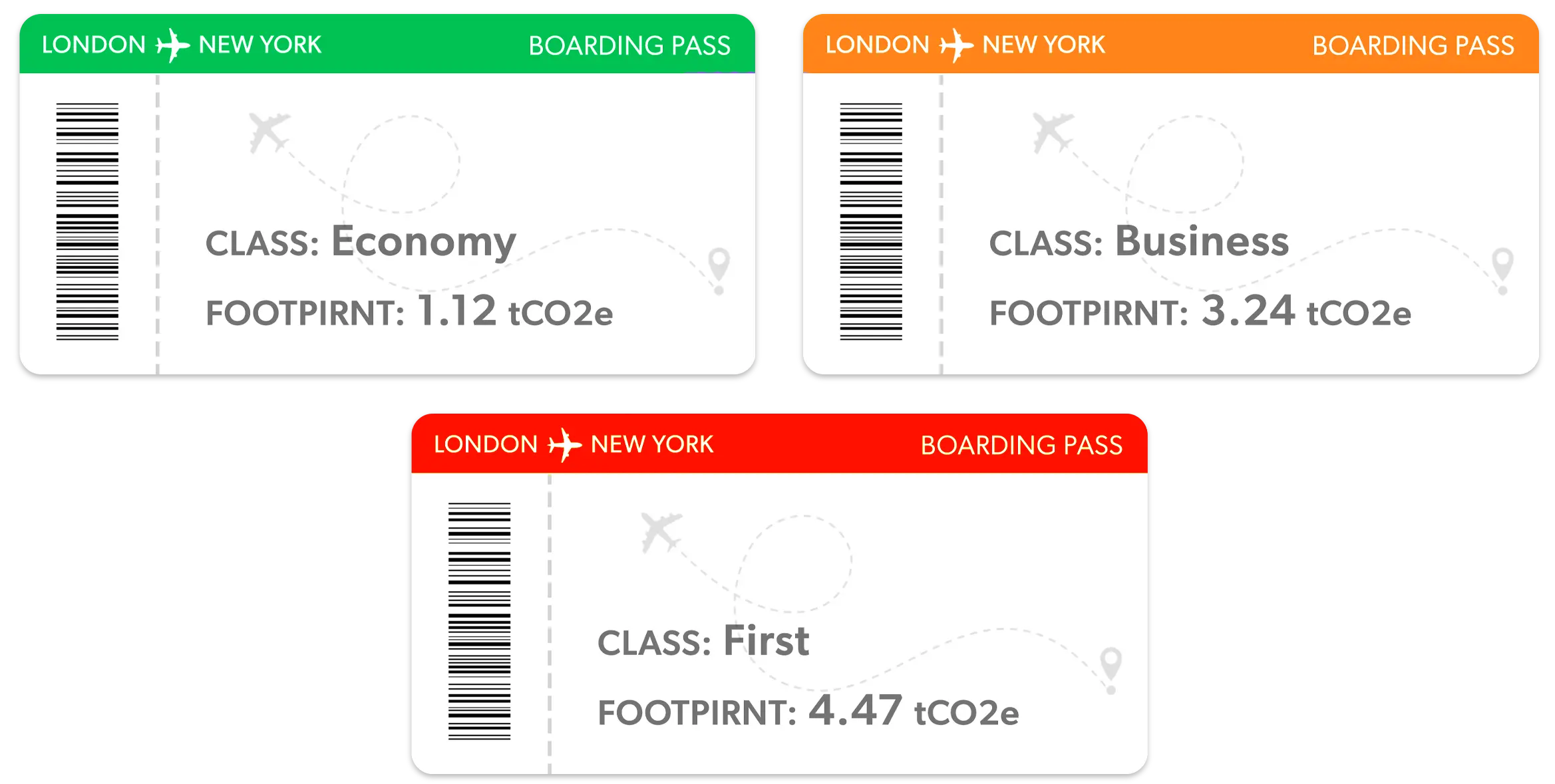
In an interconnected global economy, business travel has become the norm. It bridges geographical divides, fosters collaboration, and facilitates deals that drive growth. Yet, while the frequent flyer miles rack up, so too does the environmental impact – a consequence many companies remain blissfully unaware of. The flight class chosen for these journeys can play a significant role in a company's carbon footprint, but how many really grasp the magnitude of this impact?
According to DEFRA’s latest GHG conversion factors, a passenger in an economy class flight is responsible for between 0.13kg of carbon dioxide equivalent emissions (kgCO2e) and 0.2 kgCO2e per kilometre travelled, depending on the length of the flight and country of origin. For business class, the range is between 0.27kg and 0.58kg, and for first class its between 0.54kg and 0.8kg.
This means that for a one-way flight between London and New York, for example, one passenger in economy class would be responsible for 1.12 tCO2e emissions. If in business class, they would be responsible for 3.24 tCO2e, and in first class, 4.47 tCO2e.

Accordingly, a passenger traveling in first class is responsible for producing roughly four times the emissions of someone flying in economy. Meanwhile, a business class traveller produces almost three times the emissions of an economy class passenger.
Business and first-class sections provide larger and more comfortable seating arrangements and amenities. This means fewer seats per aircraft and more weight, which leads to higher fuel consumption per passenger.
Premium classes often offer additional services, like gourmet meals, entertainment systems, and enhanced amenities. All these additions contribute to the weight of the aircraft, further increasing fuel consumption.
Premium classes often come with increased baggage allowances. This means that, on average, the luggage weight carried for business and first-class passengers might be more than economy class passengers, further adding to the plane's total weight.
Organisations that are committed to reducing their carbon footprint should consider these figures not only a stark reminder of the impact businesses have on the planet, but also an easy opportunity for quick emissions reduction. Consider a company that has 50 return trips to and from London to New York annually, all flying Business Class. If all those flights were switched to Economy, the company would save 212 tCO2e in emissions every year – just for that single route!
The choice isn't merely about comfort versus sustainability. It's about businesses taking decisive, quantifiable steps towards a greener future. For businesses ready to take the next step in revolutionising their sustainability, not only in business travel, but across the board, FutureTracker is the perfect partner. With FutureTracker, measuring, managing, and reducing emissions is made simple. To accelerate your sustainable journey and learn more, please book a no-strings-attached consultation here.